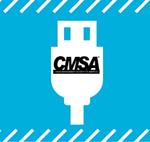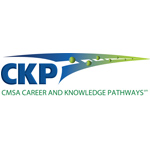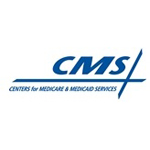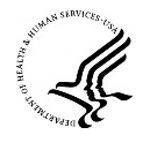| April 2016
|
In This Issue |
|
Special Announcement
|
|
|
Featured Events
|
|
|
Member Announcements
|
|
|
Featured Article
|
|
|
Articles and Links
|
|
|
Industry Events
|
|
Special Announcement
 |
ICM (Integrated Case Management) training is an advanced educational
program designed to provide case managers coming from either medical or
behavioral health backgrounds with the content and skills needed to:
- Perform systematic complexity assessments.
- Develop and carry out comprehensive and coordinated physical and mental health care plans.
- Apply consistent complexity-based anchor points in specially designed ICM clinical documentation software.
- Record ongoing clinical, functional, quality of life, satisfaction, and fiscal outcomes during the management process.
The next scheduled Section 2 will take place in Long Beach, CA, on Friday, June 24 & Saturday, June 25.
This
face-to-face session falls right on the heels of the CMSA 26th Annual
Conference & Expo, also in Long Beach from June 21-23. Come early
and join us for the conference, then finish your week with the final
session of the ICM training.
Click below to explore your options!
|
 |
with optional CEs: 1.2 RN, 1.0 CCM and 1.0 SW CE credit hours
Monday, May 16, 2016
12:30 pm - 1:45pm CDT
Case
management services have taken the forefront of improving care
coordination, patient advocacy and managing resources. But finding the
balance between value-added service & outcome-based programs plus
including patient-centered personalization is the challenge our
profession is facing today. In an effort to build not only
sustainability but consistency of case management services, CMSA, in
partnership with Wolters Kluwer, has completed a major revisions to the
CMSA Core Curriculum. This new textbook will be released at the CMSA
2016 Annual Conference. This session will highlight what to look for in
this new addition and considerations we all need to understand as we
move closer and closer to demanding attribution for payment and
documentation support for the services we provide as qualified
professional case managers.
Presenters:
Cheri Lattimer, RN, BSN – Executive Director, Case Management Society of America
Hussein
Michael Tahan, PhD, RN – System VP, Nursing Professional Development
and Workforce Planning, MedStar Health, Columbia, MD
There are no
fees to attend this webinar if you do not need CE credit. If you need
to receive CE credit, the cost is $35 for non CMSA members and $15 for
CMSA members. Register:
|
Featured Events
 |
Are you still on the fence about our annual conference? We know that your time is valuable, so we are inviting you to our webinar on May 3rd at 11am CDT to learn about WHY you need to attend this year.
CMSA's 26th Annual Conference is the only conference that offers education to all health care professionals who interact with case management in their daily work lives.
Here are just a few reasons you should join us to learn more about: • The best value per CE credit
• The most timely, significant and relevant knowledge in case management today that will be presented
• Our unique pre- and post-conference sessions, which extend your learning opportunities, and much more!
With public policy being an important issue this year, our conference will equip you with the tools, resources and networking sessions to enhance your knowledge. You will get a front seat on this and several other issues, which will be presented by high-level speakers across eight tracks, in addition to three engaging keynote presenters.
Join us to find out why CMSA is the premier healthcare conference for case managers. Can you afford to miss this event? Register today!
|
Member Announcements
 |
CMSA’s Career & Knowledge Pathways (CKP) educational program fills a longstanding gap in case management education. Theoretical
content has been available for many years, but practical instruction of
basic concepts of case management, as well as skills opportunities, have
been left to the individual case manager and employers to determine and
deliver. These circumstances have led to great variation in educational
quality, content, and case management skill sets across the health care
continuum.
The debut CKP course, CMSA Standards of Practice: The Foundation for Professional Excellence in Coordination of Care Across the Continuum,
was developed by thought leaders in case management to contribute to
the basic understanding of the standards that govern your practice.
To view the CKP gaming simulation in action, test your Standards skills and download program information, click below. CMSA members receive a program discount!
|
|
 Supported by funding from NACDS FOUNDATION, a new eight-hour
e-learning program, Comprehensive Motivational Interviewing Training for
Health Professionals, is now available. This training uses a
sense-making approach (Berger BA and Villaume WA, Motivational
Interviewing for Health Care Professionals: A Sensible Approach, APhA
Press, Washington, D.C., 2013) to motivational interviewing. The program can be completed
within a three-month window and is approved for 8 hours of nurse,
pharmacist and physician continuing education credit. It is based on
the authors' 25 years of experience in teaching motivational interviewing to health care
professionals. It costs $225.
|
 |
As you likely know, the Case Management Society of America (CMSA) — the world's largest
and most influential professional case management organization — works
to provide case/care managers, social workers and other healthcare
practitioners across the care continuum with resources to be more efficient, effective and competitive.
However, did you know that over the past 25 years CMSA has done important industry work such as developing the Standards of Practice for Case Management and working on title protection for case management?
If you already know these facts, you are probably already an official member of CMSA's
growing and diverse community. If not, we'd love to provide you with
additional resources to help you achieve your professional goals.
Click the link below to learn more!
|
Featured Article
 |
Pat Stricker, RN, MEd
Senior Vice President, TCS Healthcare Technologies
Creating an individualized, patient-specific care plan that
includes a comprehensive review of all problems, a clear set of unified goals,
and an integrated care strategy with meaningful interventions is paramount to
the standard practice of case management. However, that is easier said than
done.
It is possible for case managers to create their own care plan
for each case and manually enter it into the software workflow or care
management system, if the patient has one condition with relatively simple
needs. But how often does that happen? Case managers, by definition, typically care
for chronically ill patients with co-morbidities and complex needs. Trying to
create an effective, actionable care plan each time for each patient, by
finding and integrating different guidelines and other clinical resources, is difficult,
tedious, and time-consuming. Relying on one’s own knowledge of each condition
and the inter-relatedness of symptoms, risks, and treatment options to create a
complex, individualized care plan is almost impossible – leaving the process
open to duplication or, worse yet, omission of important care plan components
for each condition. These difficulties can result in the creation of care plans
that tend to focus more on the primary condition or disease; minimizing or overlooking
important aspects of the other conditions. Creation of comprehensive, effective
care plans is a key challenge for clinicians.
|
Articles and Links
 |
New Affordable Care Act initiative, designed to improve quality and
cost, gives doctors and patients more control over health care delivery
The Centers for Medicare & Medicaid Services (CMS) on April 11
announced its largest-ever initiative to transform and improve how
primary care is delivered and paid for in America. The effort, the
Comprehensive Primary Care Plus (CPC+) model, will be implemented in up
to 20 regions and can accommodate up to 5,000 practices, which would
encompass more than 20,000 doctors and clinicians and the 25 million
people they serve. The initiative is designed to provide doctors the
freedom to care for their patients the way they think will deliver the
best outcomes and to pay them for achieving results and improving care.
"Strengthening primary care is critical to an effective health care
system," said Dr. Patrick Conway, CMS deputy administrator and chief
medical officer. "By supporting primary care doctors and clinicians to
spend time with patients, serve patients’ needs outside of the office
visit, and better coordinate care with specialists we can continue to
build a health care system that results in healthier people and smarter
spending of our health care dollars. The Comprehensive Primary Care Plus
model represents the future of health care that we’re striving
towards."
Source: Centers for Medicare and Medicaid Services
|
 |
On March 31,
the U.S. Department of Health and Human Services, along with other
federal agencies, published a final rule that will provide new religious
liberty protections for beneficiaries of federally funded social
service programs, while also adding new protections for the ability of
religious providers to compete for government funds on the same basis as
any other private organization. The regulations – which are being
published after public notice and comment – formally implements
Executive Order 13559.
"These regulations build on widespread agreement that we can and
should do more to protect the religious liberty of beneficiaries and
provide greater clarity and transparency about applicable church-state
rules," said Melissa Rogers, executive director of the White House
Office of Faith-based and Neighborhood Partnerships. "These reforms will
strengthen partnerships that serve people in need, and we commend the
agencies for working together to issue these final regulations."
For example, these final regulations:
- Require HHS to ensure that all decisions about Federal financial
assistance are based solely on merit, without regard to an
organization’s religious affiliation or lack thereof, and free from
political interference, or the appearance of such interference.
- Make clear that faith-based organizations are eligible to
participate in HHS’ social service programs on the same basis as any
other private organization.
- Clarify what activities can and cannot be supported with direct
Federal financial assistance by replacing use of the term "inherently
religious activities" with the term "explicitly religious activities"
and providing examples of such activities.
Source: U.S. Department of Health and Human Services
|
Industry Events
 |
Thursday, April 28, 2016
A 90-Minute Lunch & Learn Audio Conference
by Elizabeth Hogue, Esq.
Health Care Attorney
Physicians
who regularly perform elective surgeries, especially joint replacements, are
eager for home health, private duty agencies and HME suppliers to establish
relationships with patients prior to their surgeries. Many hospitals perceive
that patients will have better outcomes and avoid readmissions if home care
providers establish relationships with them prior to their surgeries.
The
provision of pre-op/coordination visits raises a number of legal issues:
- Can these types
of visits be performed from a legal point of view?
- What
does the OIG say about them?
- When can visits
be performed?
- What
requirements must be met before visits can be made?
- What are the
types of activities in which providers can engage during
pre-op/coordination visits?
- Who can perform
visits? Licensed or unlicensed personnel?
- Is
reimbursement available?
The issue of patients' right to freedom of choice after
pre-op/coordination visits will also be addressed.
Specific information will be provided about how to handle this issue so that
providers limit the number of visits to patients who do not return to them
following surgery.
This will be a very practical, hands-on presentation. The goal is to teach
providers how to use these types of visits to increase market share.
|
 |
On May 12th, the winners of this year's 7th Annual Case In Point Platinum Awards will be announced
at a celebratory luncheon. The Awards Ceremony recognizes professionals
and organizations who demonstrate success in the overarching healthcare
continuum. Programs that best educate and empower
patients, improve adherence and wellness, manage quality care and
contain healthcare costs will be honored.
Learn more and register at the link below.
|
 |
CMSA members: Save $300 on any of the events below when you use promo code CMSA300.
The 13th Annual Observation Management Summit
April 26-27 • Chicago, IL
The 13th Annual Observation Management Summit brings together care providers to explore solutions to improve observation care. Over the course of two days, peers, with or without dedicated observation units, share strategies to improve efficiency and quality of care for patients under observation in a cost-effective way. Through case studies, panel discussions and seminars, attendees will explore creative approaches to maximize utilization of personal and resources while complying to evolving government and commercial payment regulations. Learn more and register here.
The 5th Annual Leadership Summit on Integrating Behavioral Health and Primary Care Models
May 16-17 • Orlando, FL
You’ve made the case for behavioral health integration. The next step is making it work. The Integrating Behavioral Health and Primary Care Models Summit convenes leaders in physical and behavioral health to discuss practical tactics to improve access to quality behavioral health services and manage patient whole health. Key topics of discussion include: addressing workforce and workflow challenges, shared care planning and coordination, innovations in integration, making integration fiscally beneficial, and best practices in operational execution of programming. Learn more and register here.
The 2nd Annual PCMH & Team-Based Care Summit
The PCMH & Team-Based Care Summit June 21-22 • Alexandria, VA
The PCMH & Team-Based Care Summit gathers team members from patient centered medical homes, community health homes, community health centers, and those in advanced primary care to explore the positive clinical and operational impact of behavioral health integration, delivery of high quality care and elements of team-based care. Discuss how behavioral health integration can improve patient engagement, disease-specific outcomes, and care coordination. Learn more and register here.
|
|
| |
|

